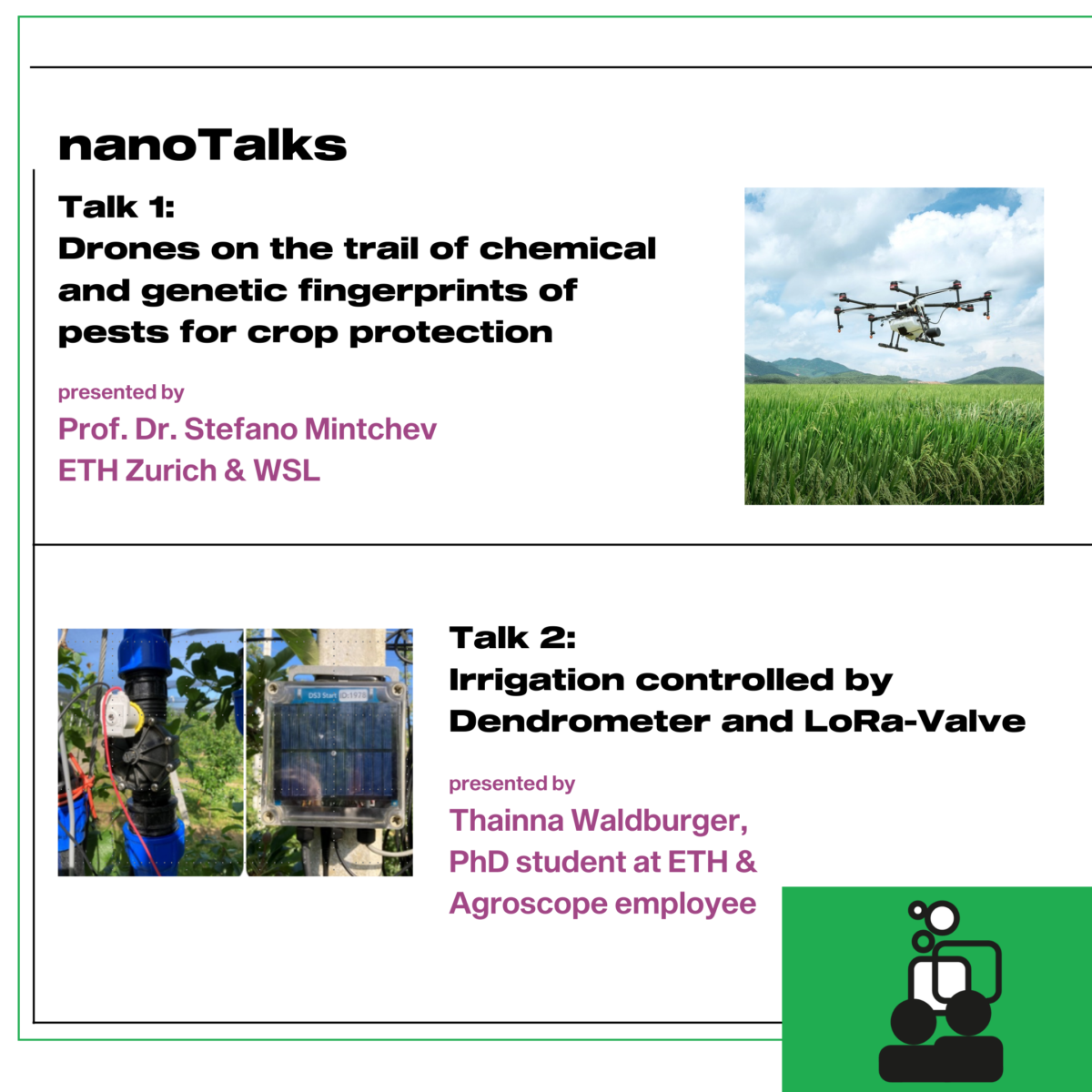
nanoTalks: Technology for agriculture
Discover how drones are revolutionizing crop protection by tracking chemical and genetic signatures of pests, enabling early detection and intervention strategies.
Explore cutting-edge irrigation control methods utilizing Dendrometer and LoRa-Valve technology, paving the way for new agricultural practices.
29.02.2024
University of Zurich - Irchel Campus, Room: Y16-G-05
max. 60, no registration needed

max. 60, no registration needed
Talk 1: Drones on the trail of chemical and genetic fingerprints of pests for crop protection.
Presented by Prof. Dr. Stefano Mintchev, ETH Zurich & WSL
Globalisation and climate change have increased the risk of pest invasions and outbreaks, resulting in crop losses and significant economic damage in Switzerland and worldwide. Effective monitoring methods are urgently needed to identify outbreaks and aid decision-making processes. However, traditional approaches, such as visual inspections, traps and remote sensing, often prove inadequate to detect invasions or outbreaks in the early stages, when intervention strategies are most effective and sustainable. In this nanoTalk, Prof. Stefano Mintchev will explain how aerial robots can enable the collection of plant volatiles, the scents emitted by plants under attack, and environmental DNA, the genetic traces left by pests in the environment, to develop sensitive and effective early warning systems for crop protection.
Talk 2: Irrigation controlled by Dendrometer and LoRa-Valve
Presented by Thainna Waldburger, Environmental engineer, PhD student at ETH and Agroscope employee in the Digital Production group.
To optimize the irrigation water use of apple orchards, dendrometers displaying the water stress level of trees were evaluated. The dendrometer exhibits the daily contraction and expansion of the diameter of the tree trunk in function of the plant's evapotranspiration rate. The contraction of the trunk can be understood as the amount of water lost by the plant during the day and the expansion as the amount of water recovered by the plant during the night. Using this information as a reference, irrigation was automatically applied according to the plant's daily water stress.
The experiment was carried out in a drip-irrigated 'Gala' apple orchard in Grens (VD), Switzerland, during years 2022 and 2023. The automated irrigation system, resulted in savings of more than 40% of water without significantly affecting production.
Image Sources:
1: pixabay (dji-4223421_1280 licence free)
2: Private Photo of Thaianna Waldburger